Pneumococcus
Líneas de investigación
Content with Investigacion .
Neumococos
Vigilancia epidemiológica de los serotipos y genotipos que causan enfermedad neumocócica invasiva (ENI) en España. Caracterización molecular de factores de virulencia de neumococo. Identificación y caracterización de proteínas de neumococo candidatas a vacuna. Evaluación de mecanismos de evasión de la respuesta inmune en Streptococcus pneumoniae. Impacto de los biofilms bacterianos en la persistencia del tracto respiratorio. Mecanismos de cronicidad de aislados clínicos de neumococo en pacientes con enfermedad pulmonar obstructiva crónica.
Proyectos de investigación
Content with Investigacion .
1: Título del proyecto: Desarrollo de enzibióticos para combatir infecciones en pacientes con fibrosis quística provocadas por los patógenos Pseudomonas aeruginosa y Staphylococcus aureus: CF-TREAT
Referencia: CPP2022-009574 / MPY 375/23
Agencia Financiadora: Agencia Estatal de Investigación. MICINN.
Fecha Inicio: 01/12/2023
Fecha Fin: 30/11/2026
Financiación: 238.938 Euros
Investigadores principales: Roberto Díez Martínez, José E. Yuste Lobo y Pilar García Suárez
2: Título del proyecto: Desarrollo de enzibióticos para combatir infecciones humanas producidas por Enterococcus faecium resistente a vancomicina (ANTI‐VRE).
Ayuda CPP2021-009054 financiada por Ministerio de Ciencia e Innovación
Investigadores principales: Roberto Díez Martínez, Jose Yuste Lobo y Mirian Domenech
Periodo: 18/11/2022 - 17/11/2025
Cuantía total: 231.455 €
3: Título del proyecto: Mecanismos de virulencia en patógenos respiratorios.
Entidad financiadora: Ministerio de Ciencia e Innovación, Agencia Estatal de Investigación (Convocatoria «Proyectos I+D+I» 2020 - Modalidades «Retos Investigación» y «Generación de Conocimiento»). Referencia: PID2020-119298RB-I00
Investigador principal: Jose Yuste Lobo
Periodo: 01/09/2021 - 30/08/2024
Cuantía total: 121.000 €
4: Título del proyecto: Efectividad de la vacuna antineumocócica conjugada 13-valente frente a la hospitalización por neumonía adquirida en la comunidad en adultos de 60 años o mayores, mediante un estudio de casos y controles modificado. Estudio CIBELES.
Investigadores principales: Jose Yuste Lobo y Ángel Gil de Miguel
Entidad financiadora: PFIZER. Referencia: MVP 249/20
Periodo: 23/02/2021 - 22/02/2025
Cuantía total: 168.000 €
5: Título del proyecto: Evolution of Invasive Pneumococcal Disease in Spain with special focus on the pathogenesis of serotypes 3, 8, 11A, 19A, 22F and 33F. Investigadores principales: Jose Yuste Lobo y Mirian Domenech.
Entidad financiadora: Merck Sharp & Dohme USA. Referencia: MVP 132/21
Período: 16/06/2021 - 15/12/2023
Cuantía total: 157.448€
6: Título del proyecto: Mecanismos de patogenicidad y protección en bacterias Gram-positivas causantes de enfermedad respiratoria y bacteriemia
Investigador principal: Jose Yuste Lobo
Entidad financiadora: MINECO. Referencia: SAF2017-83388-R
Periodo: 31/12/2017 - 30/06/2021
Cuantía total: 145.200 €
7: Título del proyecto: Characterization of susceptibility to cefditoren investigating penicillin resistant clinical isolates of Streptococcus pneumoniae.
Investigadores: Jose Yuste Lobo y Mirian Domenech Lucas
Entidad financiadora: Tedec Meiji Farma, S.A. Referencia: MVP 119/20
Periodo: 11/07/2020 – 10-07-2022
Cuantía total: 76.517 €
8: Título del proyecto: Impact of clinical isolates of serotypes 22F and 33F in the epidemiology and pathogenesis of Streptococcus pneumoniae.
Investigador principal: Jose Yuste Lobo
Entidad financiadora: Merck Sharp & Dohme España, S.A. Referencia: MVE 213/18
Periodo: 10/05/2018 - 30/05/2021
Cuantía total: 157.604 €
Publicaciones destacadas
Identification of an HIV-1 BG intersubtype recombinant form (CRF73_BG), partially related to CRF14_BG, which Is circulating in Portugal and Spain.
Fernández-García A, Delgado E, Cuevas MT, Vega Y, Montero V, Sánchez M, Carrera C, López-Álvarez MJ, Miralles C, Pérez-Castro S, Cilla G, Hinojosa C, Pérez-Álvarez L, Thomson MM. Identification of an HIV-1 BG intersubtype recombinant form (CRF73_BG), partially related to CRF14_BG, which Is circulating in Portugal and Spain. PLoS One. 2016; 11:e0148549.
PUBMED DOISequence analysis of in vivo-expressed HIV-1 spliced RNAs reveals the usage of new and unusual splice sites by viruses of different subtypes
Vega Y, Delgado E, de la Barrera J, Carrera C, Zaballos Á, Cuesta I, Mariño A, Ocampo A, Miralles C, Pérez-Castro S, Álvarez H, López-Miragaya I, García-Bodas E, Díez-Fuertes F, Thomson MM. Sequence analysis of in vivo-expressed HIV-1 spliced RNAs reveals the usage of new and unusual splice sites by viruses of different subtypes. PLoS One. 2016; 11:e0158525.
PUBMED DOIHIV-1 genetic diversity in recently diagnosed infections in Moscow: predominance of AFSU, frequent branching in clusters, and circulation of the Iberian subtype G variant.
Karamov E, Epremyan K, Siniavin A, Zhernov Y, Cuevas MT, Delgado E, Sánchez-Martínez M, Carrera C, Kornilaeva G, Turgiev A, Bacqué J, Pérez-Álvarez L, Thomson MM. HIV-1 genetic diversity in recently diagnosed infections in Moscow: predominance of AFSU, frequent branching in clusters, and circulation of the Iberian subtype G variant. AIDS Res Hum Retroviruses. 2018; 34:629-634.
PUBMED DOIBayesian phylogeographic analyses clarify the origin of the HIV-1 subtype A variant circulating in former Soviet Union's countries.
Díez-Fuertes F, Cabello M, Thomson MM. Bayesian phylogeographic analyses clarify the origin of the HIV-1 subtype A variant circulating in former Soviet Union's countries. Infect Genet Evol. 2015; 33:197-205.
PUBMED DOIViruses from a cluster of HIV-1 Elite controllers inherit viral characteristics associated with the clinical non-progressor phenotype.
Casado C, Marrero-Hernández S, Márquez-Arce D, Pernas M, Marfil S, Borràs-Grañana F, Olivares I, Cabrera-Rodríguez R, Valera M-S, de Armas-Rillo L, Lemey P, Blanco J, Valenzuela-Fernández A, Lopez-Galíndez C. 2018. Viral characteristics associated with the clinical nonprogressor phenotype are inherited by viruses from a cluster of HIV-1 elite controllers. mBio 9:e02338-17.
PUBMED DOIFactors Leading to the Loss of Natural Elite Control of HIV-1 Infection.
María Pernas, Laura Tarancón-Diez, Esther Rodríguez-Gallego, Josep Gómez, Julia G. Prado, Concepción Casado, Beatriz Dominguez-Molina, Isabel Olivares, Maite Coiras, Agathe León, Carmen Rodriguez, Jose Miguel Benito, Norma Rallón, Montserrat Plana, Onofre Martinez-Madrid, Marta Dapena, Jose Antonio Iribarren, Jorge del Romero, Felipe García, José Alcamí, Mª Ángeles Muñoz-Fernández, Francisco Vidal, Manuel Leal, Cecilio Lopez-Galindeza, Ezequiel Ruiz-Mateos. On behalf of ECRIS integrated in the Spanish AIDS Research Network. (2018). Factors Leading to the Loss of Natural Elite Control of HIV-1 Infection. J.Virol. 92, 5 e01805-17.
PUBMED DOIImproved antibody cross-neutralizing activity in HIV-1 dual double infected LTNP patients.
María Pernas, Concepción Casado, Victor Sanchez-Merino, Alberto Merino-Mansilla, Isabel Olivares, Eloisa Yuste, Cecilio Lopez-Galindez. Improved antibody cross-neutralizing activity in HIV-1 dual double infected LTNP patients. (2015) PLoS One. Aug 10; 10 (8):e0134054. doi: 10.1371/journal.pone.0134054. eCollection.
PUBMED DOIInfluence of Mutation and Recombination on HIV-1 in vitro Fitness Recovery.
Ramón Lorenzo-Redondo, Miguel Arenas, and Cecilio Lopez-Galindez. Influence of Mutation and Recombination on HIV-1 in vitro Fitness Recovery. (2015) Mol Phylogenet Evol. Sep 7. pii: S1055-7903(15)00259-6. doi: 10.1016/j.ympev.2015.09.001. PMID: 26358613
PUBMED DOIAnalysis of HIV-1 “in vitro” evolution through 3D real fitness landscapes constructed by Self Organizing Maps.
Ramón Lorenzo‐Redondo, Soledad Delgado, Federico Morán, and Cecilio Lopez‐Galindez. Analysis of HIV-1 “in vitro” evolution through 3D real fitness landscapes constructed by Self Organizing Maps. (2014) PLoS One. 9(2): e88579.
PUBMED DOIIdentification of a Spanish HIV-1 Long Term Non-Progressor cluster infected with a low replicating virus.
Concepción Casado, Maria Pernas, Virginia Sandonis, Tamara Alvaro-Cifuentes, Isabel Olivares, Rosa Fuentes, Lorena Martínez Prats, Eulalia Grau, Lidia Ruiz, Rafael Delgado, Carmen Rodríguez, Jorge del Romero, and Cecilio López-Galíndez. Identification of a Spanish HIV-1 Long Term Non-Progressor cluster infected with a low replicating virus. (2013). PLoS One. 8 (10):e77663.
PUBMED DOIA Genome-to-Genome Analysis of Associations between Human Genetic Variation, HIV-1 Sequence Diversity, and Retroviral Control.
Istvan Bartha Jonathan M Carlson, Chanson J Brumme, Paul J McLaren, Zabrina L Brumme, Mina John, David W Haas, Javier Martinez-Picado, Cecilio López Galíndez, Andri Rauch, Huldrych F Günthard, Enos Bernasconi, Pietro Vernazza, Thomas Klimkait, Sabine Yerly, Jennifer Listgarten, Nico Pfeifer, Zoltan Kutalik, Todd M Allen, Viktor Müller, P Richard Harrigan, David Heckerman, Amalio Telenti, and Jacques Fellay, for the HIV Genome-to-Genome Study and the Swiss HIV Cohort Study. A Genome-to-Genome Analysis of Associations between Human Genetic Variation, HIV-1 Sequence Diversity, and Retroviral Control. (2013). Elife. 2013;2:e01123.
PUBMED DOIPrevalence of HIV-1 dual infection in LTNP-Elite Controllers
María Pernas, Concepción Casado, Virginia Sandonis, Carolina Arcones, Carmen Rodríguez , Ezequiel Ruiz-Mateos , Eva Ramírez de Arellano , Norma Rallón , Margarita Del Val , Eulalia Grau, Mariola López-Vazquez , Manuel Leal , Jorge del Romero , Cecilio López Galíndez . Prevalence of HIV-1 dual infection in LTNP-Elite Controllers. (2013). J.of AIDS. 64, 3, 225-231. IF 4.262
PUBMED DOIEvidence of Ongoing Replication in a Human Immunodeficiency Virus Type 1 Persistently Infected Cell Line
Isabel Olivares, Carmen Sánchez-Jiménez, Catarina Reis Vieira, Víctor Toledano, Mónica Gutiérrez-Rivas, and Cecilio López-Galíndez. Evidence of Ongoing Replication in a Human Immunodeficiency Virus Type 1 Persistently Infected Cell Line. (2013). J. of General Virology. 94, 944-954.
PUBMED DOIPrevalence of pSCFS7-like vectors among cfr-positive staphylococcal population in Spain.
Prevalence of pSCFS7-like vectors among cfr-positive staphylococcal population in Spain. Nguyen LTT*, Román F*, Morikawa K, Trincado P, Marcos C, Rojo-Martín MD, Cafini F. Int J Antimicrob Agents. 2018 Aug;52(2):305-306.
PUBMED DOICarbapenemase-Producing Klebsiella pneumoniae From Transplanted Patients in Brazil: Phylogeny, Resistome, Virulome and Mobile Genetic Elements Harboring blaKPC2 or blaNDM-1
Raro OHF, da Silva RMC, Filho EMR, Sukiennik TCT, Stadnik C, Dias CAG, Oteo, Iglesias J, Pérez-Vázquez M. Carbapenemase-Producing Klebsiella pneumoniae From Transplanted Patients in Brazil: Phylogeny, Resistome, Virulome and Mobile Genetic Elements Harboring blaKPC2 or blaNDM-1.Front Microbiol. 2020 jul 15;11:1563.
PUBMED DOICarbapenemase-producing Pseudomonas aeruginosa in Spain: interregional dissemination of the high risk-clones ST175 and ST244 carrying blaVIM-2, blaVIM-1, blaIMP-8, blaVIM-20 and blaKPC-2
Pérez-Vázquez M, Sola-Campoy PJ, Zurita ÁM, et al. Carbapenemase-producing Pseudomonas aeruginosa in Spain: interregional dissemination of the high risk-clones ST175 and ST244 carrying blaVIM-2, blaVIM-1, blaIMP-8, blaVIM-20 and blaKPC-2.Int J Antimicrob Agents. 2020;106026.
PUBMED DOIProspective multicenter study of carbapenemase producing Enterobacteriaceae from 83 hospitals in Spain: High in vitro susceptibility to colistin and meropenem
Oteo J*, Ortega A, Bartolomé R, Bou G, Conejo C, Fernández-Martínez M, González-López JJ, Martínez-García L, Martínez-Martínez L, Merino M, Miró E, Mora M, Navarro F, Oliver A, Pascual Á, Rodríguez-Baño J, Ruiz-Carrascoso G, Ruiz-Garbajosa P, Zamorano L, Bautista V, Pérez-Vázquez M, Campos J; GEIH-GEMARA (SEIMC) and REIPI. Prospective multicenter study of carbapenemase producing Enterobacteriaceae from 83 hospitals in Spain: High in vitro susceptibility to colistin and meropenem. Antimicrob Agents Chemother. 2015; 59(6): 3406-12.
PUBMED DOIEmergence of NDM-producing Klebsiella pneumoniae and Escherichia coli in Spain: phylogeny, resistome, virulence and plasmids encoding blaNDM-like genes as determined by WGS
Pérez-Vázquez M, Sola Campoy PJ, Ortega A, Bautista V, Monzón S, Ruiz-Carrascoso G, Mingorance J, González-Barberá EM, Gimeno C, Aracil B, Sáez D, Lara N, Fernández S, González-López JJ, Campos J, Kingsley RA, Dougan G,Oteo-Iglesias J; Spanish NDM Study Group. Emergence of NDM-producing Klebsiella pneumoniae and Escherichia coli in Spain: phylogeny, resistome, virulence and plasmids encoding blaNDM-like genes as determined by WGS. J Antimicrob Chemother. 2019 Dec 1; A 74(12):3489-3496.
PUBMED DOIZoonotic pathogens in fluctuating common vole (Microtus arvalis) populations: occurrence and dynamics
Rodriguez-Pastor, Ruth; Escudero, Raquel; Lambin, Xavier; Vidal, M Dolors; Gil, Horacio; Jado, Isabel; Rodriguez-Vargas, Manuela; Luque-Larena, Juan Jose; Mougeot, Francois. Zoonotic pathogens in fluctuating common vole (Microtus arvalis) populations: occurrence and dynamics. Parasitology. pp. 1 - 10. 24/09/2018.
PUBMED DOIContent with Investigacion .
-
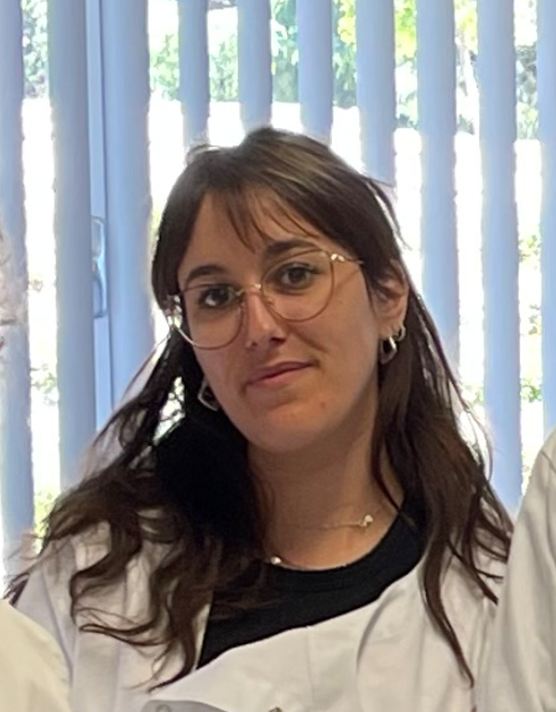
Aída Úbeda Trillo
Técnico de Laboratorio
Técnico superior en laboratorio de diagnóstico clínico en 2019. Lleva vinculada a la Unidad de Neumococos desde 2023 como técnico de laboratorio contratada. Anteriormente estuvo contratada en el Servicio de Microbiología y Urgencias del Hospital Infanta Sofía de Madrid.
-
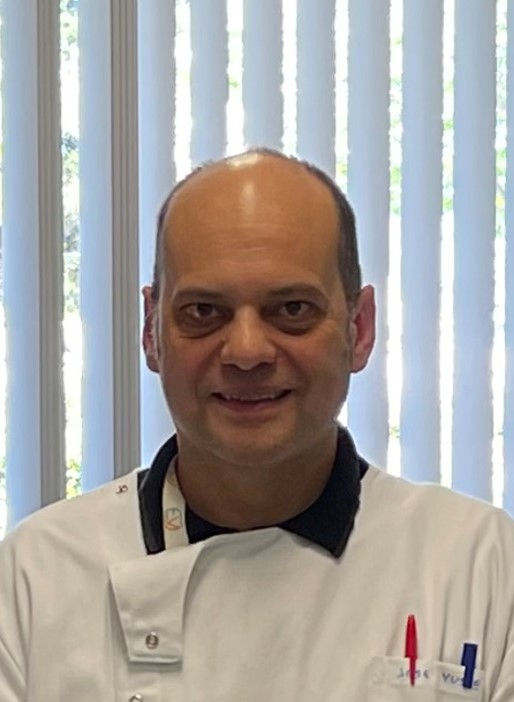
José Enrique Yuste Lobo
Científico Titular
ORCID code: 0000-0001-7996-0837
Licenciado en Farmacia en 1998 y Doctor en 2002 por la Universidad Complutense de Madrid. Realizó su tesis doctoral en el laboratorio de neumococos del Centro Nacional de Microbiología del ISCIII. Posteriormente trabajó durante 5 años en Londres, primero como Investigador Asociado en el Centre for Molecular Microbiology and Infection Biology de Imperial College hasta 2003 y luego en el Centre for Respiratory Research de University College hasta 2007. Tras esta etapa posdoctoral en Reino Unido, trabajó durante 3 años como Investigador Senior en el Centro de Investigaciones Biológicas del CSIC hasta 2010. Desde entonces trabaja como Científico Titular en la Unidad de Neumococos del CNM-ISCIII, siendo el responsable científico del laboratorio desde el año 2016. Es investigador principal del grupo CIBER de Enfermedades Respiratorias (CIBERES) CB06/06/0003 (https://www.ciberes.org/grupos/grupo-de-investigacion?id=18143)
-
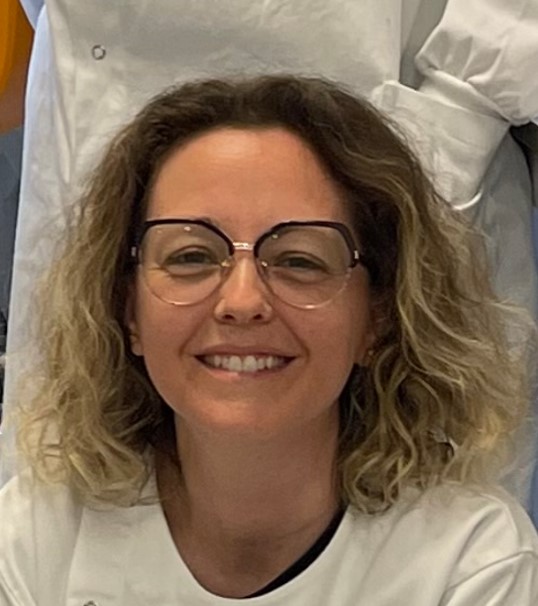
Mirian Domenech Luchas
Investigadora posdoctoral
ORCID code: 0000-0002-0942-8180
Licenciada en Ciencias Biológicas en 2005 y Doctora en 2012 por la Universidad Complutense de Madrid. Realizó su tesis doctoral en el Centro de Investigaciones Biológicas del CSIC bajo la dirección del Profesor Ernesto García y la Dra. Miriam Moscoso caracterizando el biofilm neumocócico y estudiando distintos antimicrobianos para prevenir y tratar las infecciones producidas por neumococo y otros patógenos. Posteriormente ha trabajado como investigadora junior para el CIBER de Enfermedades Respiratorias y para la empresa Investigación y Proyectos Microbiológicos realizando estudios sobre biofilms de patógenos respiratorios. A finales del 2018 se incorporó a la Unidad de Neumococos del Centro Nacional Microbiología del ISCIII, donde participa en las distintas labores de investigación y referencia de la Unidad y es profesora ayudante Doctor de la Facultad de Biología de la Universidad Complutense de Madrid.
-
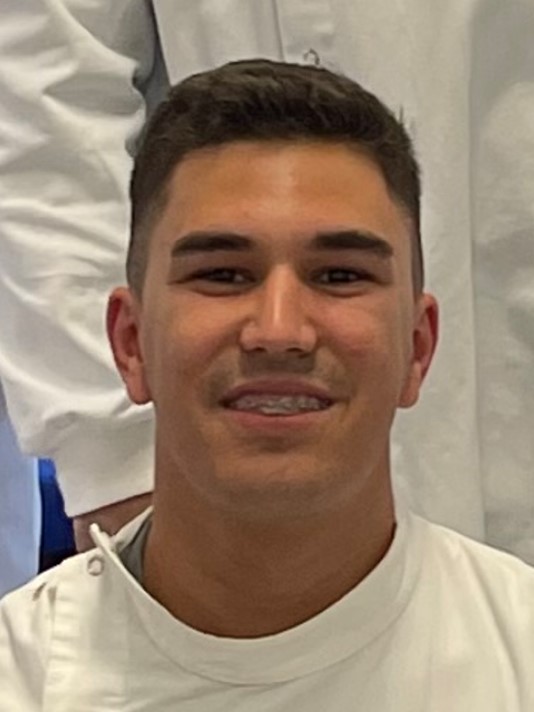
Julio Sempere García
Investigador Posdoctoral
ORCID code: 0000-0001-9340-6867
Graduado en Bioquímica por la Universidad Complutense de Madrid, donde posteriormente cursó estudios de Máster en Microbiología y Parasitología. Actualmente realiza el programa de doctorado en Microbiología y Parasitología. Lleva asociado a la Unidad de Neumococos desde 2017, donde realizó las prácticas extracurriculares de grado y posteriormente realizó su trabajo de fin de grado (2018) y trabajo de fin de máster (2019). En 2022 obtuvo el grado de Doctor y actualmente investiga biofilms de bacterias Gram positivas, la matriz de estos y cómo interaccionan con el sistema inmune. También trabaja en la interacción de diferentes cápsulas de Streptococcus pneumoniae con el sistema inmune y patogénesis de serotipos emergentes incluidos en las futuras vacunas antineumocócicas.
-

Erick Joan Vidal Alcántara
Ayudante de Investigación
ORCID code: 0000-0001-8946-3754
Graduado en Biología por la Universidad Complutense de Madrid, y posteriormente cursó estudios de Máster en Microbiología aplicada a salud pública e investigación en enfermedades infecciosas por la Universidad de Alcalá de Henares. Lleva vinculado a la Unidad de Neumococos desde 2022 como ayudante de investigación y es personal de plantilla.
-
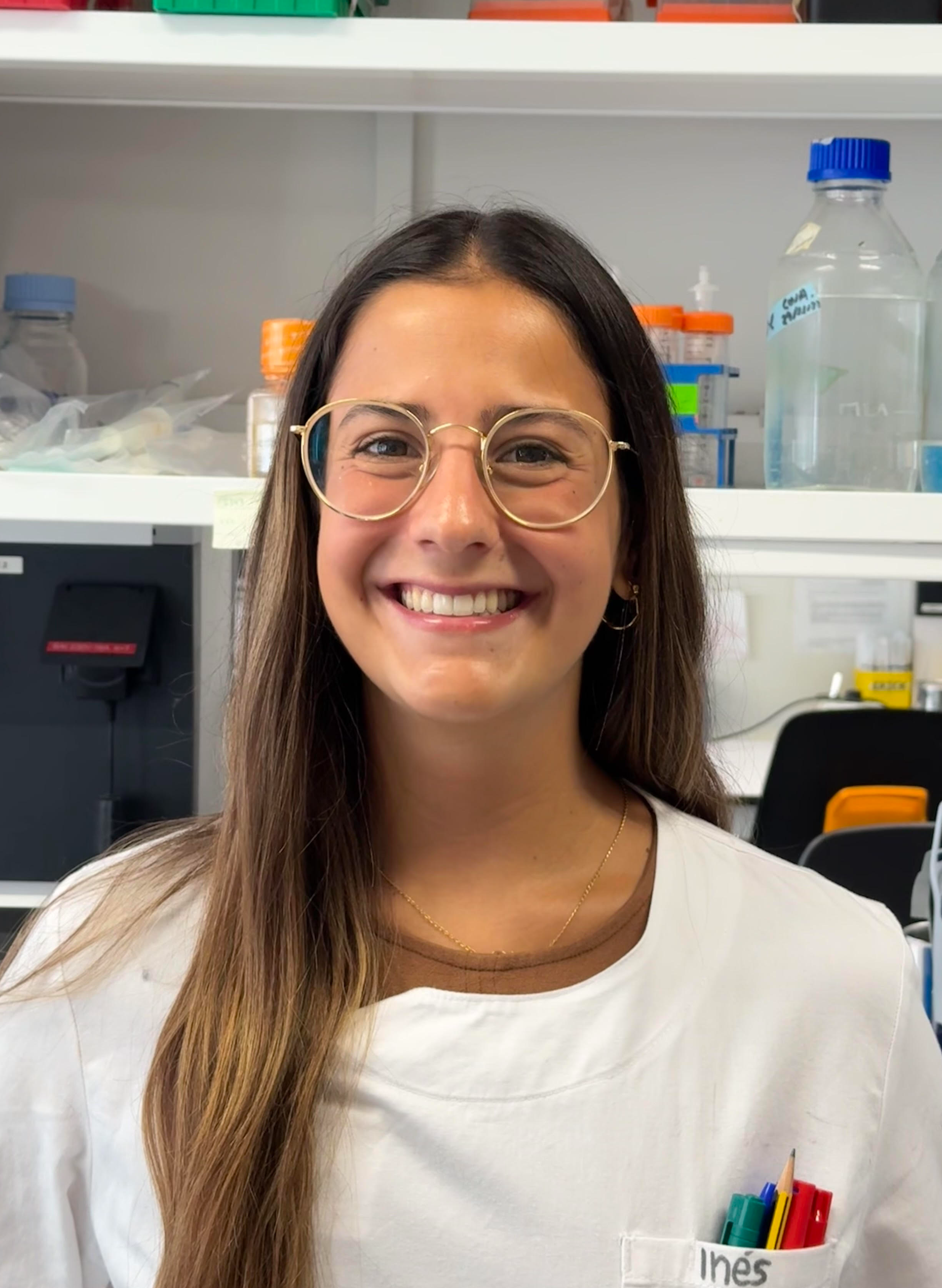
Inés Pareja Cerbán
Estudiante predoctoral CIBERES
ORCID code: 0009-0006-8015-7367
Graduada en Bioquímica por la Universidad de Málaga. Es contratada predoctoral del CIBER de Enfermedades Respiratorias (CIBERES) y en nuestro grupo está realizando su Tesis Doctoral en la caracterización de factores de virulencia de aislados prevalentes así como en el estudio y caracterización de nuevos antimicrobianos frente a bacterias respiratorias.
-
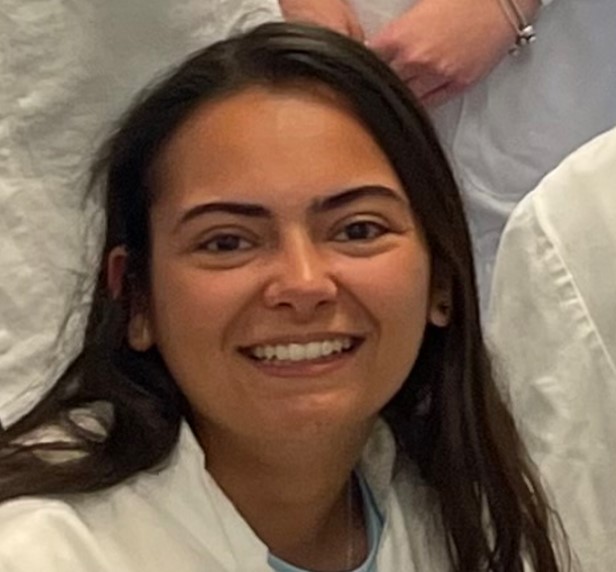
Covadonga Pérez García
Contratada predoctoral FPU
ORCID code: 0000-0002-5295-6480
Graduada en Biología por la Universidad Complutense de Madrid, donde posteriormente cursó estudios de Máster en Microbiología y Parasitología. Lleva vinculada a la Unidad de Neumococos desde 2019, donde realizó las prácticas extracurriculares de grado y posteriormente realizó su trabajo de fin de grado (2020) y trabajo de fin de máster (2021). En 2022 obtuvo beca predoctoral del programa FPU y actualmente investiga mecanismos de patogenicidad y protección de serotipos emergentes de neumococo.
-

Mirella Llamosí Fornés
Contratada predoctoral
ORCID code: 0000-0002-4369-9558
Graduada en Biología por la Universidad Complutense de Madrid, donde posteriormente cursó estudios de Máster en Microbiología y Parasitología. Está realizando su Tesis Doctoral en el campo de la resistencia antibiótica así como en la búsqueda y caracterización de nuevos antimicrobianos con especial interés en lograr compuestos activos frente a infecciones producidas por biofilms.
List of staff
Información adicional
The Pneumococcus Unit is in charge of two very important aspects related to pneumococcus infections, such as epidemiological surveillance and basic and translational research of diseases caused by this pathogen. Our unit contributes to the epidemiological surveillance of invasive pneumococcal disease (IPD), characterizing the serotypes and genotypes of invasive pneumococci circulating in Spain, as well as the evolution of antibiotic resistance in this pathogen.
Identification of culture-negative samples (CSF and pleural fluids) is performed using real-time PCR. Serotyping is performed using the Dot-blot and PCR-sequencing technique. Genotyping for the study of outbreaks and characterization of clones associated with hypervirulent and/or multiresistant strains is performed using the MLST technique and the analysis of complete genomes by massive sequencing. In addition, antibiotic susceptibility is determined following the EUCAST criteria.
Our unit belongs to the IBD-labnet network of the ECDC and annually notifies all cases of IPD to the ECDC and also to the IRIS (Invasive Respiratory Infection Surveillance) network. At the level of basic and translational research, our unit is responsible for studying and characterizing different molecular mechanisms of pathogenicity and protection related to pneumococcal infection. Among the main objectives are the molecular characterization of virulence factors, the study of different vaccine candidate proteins and determining the possible impact that tobacco smoke and the formation of biofilms have on the colonization of the respiratory tract.
The Pneumococcus Unit is in charge of two very important aspects related to pneumococcus infections, such as epidemiological surveillance and basic and translational research of diseases caused by this pathogen. Our unit contributes to the epidemiological surveillance of invasive pneumococcal disease (IPD), characterizing the serotypes and genotypes of invasive pneumococci circulating in Spain, as well as the evolution of antibiotic resistance in this pathogen.
Identification of culture-negative samples (CSF and pleural fluids) is performed using real-time PCR. Serotyping is performed using the Dot-blot and PCR-sequencing technique. Genotyping for the study of outbreaks and characterization of clones associated with hypervirulent and/or multiresistant strains is performed using the MLST technique and the analysis of complete genomes by massive sequencing. In addition, antibiotic susceptibility is determined following the EUCAST criteria.
Our unit belongs to the IBD-labnet network of the ECDC and annually notifies all cases of IPD to the ECDC and also to the IRIS (Invasive Respiratory Infection Surveillance) network. At the level of basic and translational research, our unit is responsible for studying and characterizing different molecular mechanisms of pathogenicity and protection related to pneumococcal infection. Among the main objectives are the molecular characterization of virulence factors, the study of different vaccine candidate proteins and determining the possible impact that tobacco smoke and the formation of biofilms have on the colonization of the respiratory tract.